
THE VOICE OF INTERNATIONAL LITHUANIA
|
VilNews has its own Google archive! Type a word in the above search box to find any article.
You can also follow us on Facebook. We have two different pages. Click to open and join.
|
News
![]()

Israeli airline Sun d’Or announced that, in cooperation with Israel’s national airline El Al, it is to launch new direct flights between Tel Aviv and Vilnius International Airport as of June 20th this year.
Flights from Vilnius International Airport to Israel’s Ben Gurion International Airport are scheduled once a week – on Wednesdays. Arrival to Vilnius is scheduled at 9:50 a.m., departure from Vilnius – at 11:15 a.m. The duration of the flight to Tel Aviv is 4 hours and 20 min.There is no doubt that this important event will further contribute to reconnecting the two states and nations, to promoting bilateral relations, trade, investment and tourism growth.
This is indeed a very good news to mark the 20th anniversary of the establishment of diplomatic relations between Lithuania and Israel.
El Al flights will be operated by an airplane “Boeing 757-200” with 210 passenger seats. Passengers will be offered approximately 1,600 seats per month. With regard to aircraft loading, ticket sales and other factors, the airlines will decide on possibly higher frequency of flights.
Israel’s airline Sun D’Or is operating in Ben Gurion International Airport, its main partner is Israel’s national airline El Al. The majority of flights operated by Sun d’Or are tourist flights to various European cities.
- Bookmark :
- Digg
- del.icio.us
- Stumbleupon
- Redit it
- Posted by - (0) Comment
Lithuania’s Defense Minister Rasa Jukneviciene in meeting with U.S. Defense Secretary Leon Panetta:

Russia increases military activity along Lithuania’s borders, implements military reform, arranges more military training events, and carries out militarization process in the Kaliningrad Oblast. The regime in Lithuania’s neighbourhood becomes more and more autocratic and oligarchic.
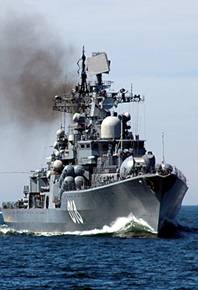
The destroyer ‘Nastoychivy’, one of many in Russia’s huge ‘Baltic Fleet’.
During her visit in Chicago last week Lithuanian Minister of National Defence Rasa Jukneviciene attended a round-table discussion with members of the Chicago Council on Global Affairs (CCGA), met with representatives of the Chicago’s Lithuanian Community, honored the tomb of Gen P. Plechavicius and the memory of pilots S. Darius and S. Girenas, Lithuania’s Ministry of Defence reports.
In a discussion with the CCGA representatives Lithuanian Minister stated that despite the essential changes NATO has undergone during the latter 20 years, the Alliance remains the vital guarantee for Lithuania’s security.
“The Chicago NATO Summit in May will be of utmost importance to Lithuania. Lithuania anticipates positive decisions regarding the extension of the Air Policing mission, accreditation of the Energy Security Centre and NATO missile defence system”, she said.
R. Jukneviciene also remarked she expected an even more intense role of NATO and USA in the Baltic Region due to the region-specific security environment.
“Russia continually increases military activity along Lithuania’s borders, implements military reform, arranges more military training events, and carries out militarization process in the Kaliningrad Oblast,” Lithuanian Minister said. ”The regime in Lithuania’s neighborhood becomes more and more autocratic and oligarchic.”
- Bookmark :
- Digg
- del.icio.us
- Stumbleupon
- Redit it
Lithuania still among the “flawed democracies” around the world, according to a new report from The Economist
- Posted by - (0) Comment
![]()

Norway on top,
Lithuania number 41.
The publication’s Economist Intelligence Unit ranked 167 countries and territories in its Democracy Index 2011, placing Lithuania as 41st overall, same as last year.
The report scores countries based on five measures: electoral process and pluralism; civil liberties; the functioning of government; political participation; and political culture.
Based on their scores, countries are placed in one of four different regime categories: full democracies, flawed democracies, hybrid regimes and authoritarian regimes.
Just 25 countries, led by Norway, are considered full democracies, according to the 2011 report. A total of 53 countries, including all three Baltic states, are considered flawed democracies. Hybrid regimes are found in 37 countries, while authoritarianism reigns in 52.
“Much of eastern Europe illustrates the difference between formal and substantive democracy,” according to the report. “The new EU (European Union) members from the region have pretty much equal level of political freedoms and civil liberties as the old developed EU, but lag significantly in political participation and political culture—a reflection of widespread anomie and weaknesses of democratic development.”
The Czech Republic, ranked No. 16, is the only country from Eastern Europe to make it into the top tier of full democracies.
Scandinavia swept the top four spots in the rankings. Norway at No. 1 is followed by Iceland, Denmark and Sweden. The Top 10 full democracies are rounded out by New Zealand, Australia, Switzerland, Canada, Finland and the Netherlands.
The United States ranks 19th, one notch below the United Kingdom.
Among the Baltic states, only Latvia’s ranking improved, rising from 49th in the 2010 index. Estonia dropped a spot from 33rd in 2010 to 34th in 2011. Lithuania, at No. 41, remains unchanged.
Russia ranked 117th, placing it in the list of authoritarian regimes. The announcement in September that Prime Minister Vladimir Putin will again seek the presidency of Russia is “a retrograde and cynical step,” according to the report.
- Bookmark :
- Digg
- del.icio.us
- Stumbleupon
- Redit it
Lithuania still planning to adopt euro in 2014
- Posted by - (0) Comment
![]()

Lithuania is still determined to introduce the embattled euro currency in two years, a government official said Tuesday, despite skepticism by the Baltic country's president.
The center-right government was doing everything possible to join the eurozone in 2014, its previously stated goal, said Virgis Valentinavicius, an adviser to Prime Minister Andrius Kubilius.
"The most important thing are stable finances" to meet the standards of the EU "and the prime minister is sure that our country will meet them," said Valentinavicius.
"We can only hope that EU will solve the problems of common currency by that time," he added.
However, in an interview published Monday in the Veidas magazine, President Dalia Grybauskaite expressed doubt that Lithuania would be ready, saying "2014 was unrealistic." She did not elaborate.
- Bookmark :
- Digg
- del.icio.us
- Stumbleupon
- Redit it
![]()
The year 2011 was the least successful for Vilnius bourse NASDAQ OMX; its index fell 27.5% – the lowest since 2008, The Lithuania Tribune reports, referring to 15min.lt.

A specialist of SEB Bank noted that the decrease of the Vilnius stock exchange index took place due to the foreign facts, writes LETA/ELTA.
"At least one can take comfort from the fact that decline [of the stock exchange in 2011] was mainly due to foreign news, not local. From the earthquake in Japan to the eurozone debt crisis", said Arvydas Jacikevicius, Senior Broker at SEB Bank.
According to him, the main European stock markets still tried to resist the pessimism up until the end of the summer, while stock markets in developing countries, including Lithuania, did not show any obvious signs of recovery since spring.
However, according to Rytis Davidovicius, the General Director of Orion Asset Management, which manages 7.6 million litas worth investment fund Omx Baltic Benchmark, next year would bring many challenges because of multiple market sentiment changes and political decisions directly affecting the stock markets.
"For this reason, the investors should not get distracted and after reassessing their risks keep to their investment strategy", said R. Davidovicius.
From the beginning of this year to Wednesday, Vilnius stock market index OMX Vilnius suffered the biggest fall among the Baltic States' indexes – by 27.5%, the OMX Tallinn fell by 22.9%, and OMX Riga – by 6.2%.
Read more…
- Bookmark :
- Digg
- del.icio.us
- Stumbleupon
- Redit it
![]()
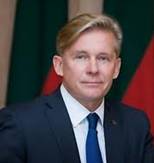
In the wake of failed bilateral talks on Polish minority schools in Lithuania, the Lithuanian foreign minister has said that his country “do not need a big brother.”
Foreign Minister Audronius Azubalis said that Poland had “driven into a dead end” by trying to influence internal Lithuanian affairs.
“Our government said clearly: all issues relating to citizens, regardless of whether they relate to minorities, shall be settled by we ourselves,” he told the Lithuanian IQ magazine.
The foreign minister added that his own country was not to blame for the problems.
“Vilnius is not responsible for tensions in Polish-Lithuanian relations,” he said.
Read more…
- Bookmark :
- Digg
- del.icio.us
- Stumbleupon
- Redit it
![]()

“Vilnius became one of the favourite cities due to its Flag Day, since 1919, when the Lithuanian tricolor was first raised on the castle tower.
Argophilia Travel News has named its favorite Eastern European cities to celebrate 2012: Riga, Tallinn, Prague, Debrecen and Vilnius.
Riga was named one of Eastern Europe’s best due to its spectacular fireworks, live concerts and shows; Tallinn was praised for its artistic celebration program, and Vilnius – for its unique Flag Day tradition marked on Jan. 1, informsLETA.
“Riga (Latvia) holds a New Year’s Eve fireworks event next to the Freedom Monument (…) There are many events – live concerts, shows, handicrafts market – before midnight, when the fireworks will light the sky,” writes Argophilia.
“Tallinn (Estonia) concludes 2011 with a unique artistic celebration: the Estonia Ball 2011 at the National Opera. Traditional food and drinks accompany the event, which will feature the National Symphony Orchestra, soloist Marilin Kongo and DJ Aivar Havi from Club Colombinas. Guests will enjoy dancing in the unique atmosphere of the theater. (…)”
“Vilnius (Lithuania) celebrates more than just the New Year on Jan. 1: this is Lithuania’s Flag Day, since 1919, when the Lithuanian tricolor was first raised on the castle tower on Gediminas’ Hill. Aside traditional concerts, and fireworks at midnight, you can see the changing on the flag the next day, and assist at various national celebrations,” noted Argophilia’s experts.
- Bookmark :
- Digg
- del.icio.us
- Stumbleupon
- Redit it
- Posted by - (0) Comment
![]()
A Lithuanian at a Carnatic kutcheri, can come as a mild surprise to some. But a Lithuanian learning and playing the mridangam?
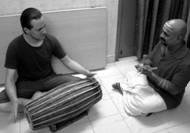
Pranas and Ghatam Suresh.
“You would not know my country, let me write it down for you,” said the man challenging my general knowledge. In a sea of silk sarees of myriad colours, veshtis and angavastrams, he towered over the others, dressed in an olive green T-shirt and grey crop pants. He had the usual attributes of any tourist visiting south India, except that he belonged to a country with less than half the people in Chennai — Lithuania.
A Lithuanian at a Carnatic kutcheri, can come as a mild surprise to some. But a Lithuanian learning and playing the mridangam? As I listened to Pranas recount how he found Carnatic music in Eastern Europe, I wondered for a moment at the perceptiveness of the Canadian philosopher Marshall McLuhan. Was his idea of a global village actually taking shape, at least culturally?
- Bookmark :
- Digg
- del.icio.us
- Stumbleupon
- Redit it
- Posted by - (0) Comment
“Even today the Russians deny the fact that they occupied Lithuania.
So, the Lithuanians went to Siberia on their own initiative and shot themselves there”
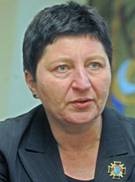
Dalia Kuodyte.
The former head of the Center for the Study of Genocide and Resistance in Lithuania, deputy of the Lithuanian Seimas Dalia KUDYTE who attended the conference “The Lithuanian Experience in Overcoming the Consequences of the Totalitarianism” in Kyiv (organized by the Center for the Study of the Liberation Movement with the assistance of the Lithuanian embassy in Ukraine) told Den about the importance of a spiritual leader for a country and about the ways to return the national history.
“WE HAVE LAID THE FOUNDATION FOR THE NEW LITHUANIAN MENTALITY. WE CANNOT COME BACK TO THE SOVIET PAST”
- Bookmark :
- Digg
- del.icio.us
- Stumbleupon
- Redit it
- Posted by - (0) Comment
Stalin's brutal deportations affected Chicago-area families
Lithuanians remember era in exhibit

Vytautas' drawing shows the gulag forced labor camps.
Photo by David Pierini.
A chapter of history largely unknown in the U.S. is being featured in an exhibit on Chicago's Southwest Side.
The Balzekas Museum of Lithuanian Culture tells the story of Lithuanians deported to Siberia. They were among millions of people across the Soviet Union who Stalin forced out of their homes and sent away to perform labor for little or nothing.
- Bookmark :
- Digg
- del.icio.us
- Stumbleupon
- Redit it
My father and his parents were on the first train of deportees sent to Siberia, and they spent five years in the frozen labor camps between Kasnojarsk and Irkutsk
- Posted by - (0) Comment
![]()
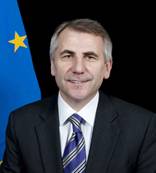
By VYGAUDAS USACKAS
European Union's ambassador to Afghanistan
In the spring of 1983, I boarded a train for Kazakhstan along with other Lithuanians drafted into the Soviet military. Once there, we were to receive our orders for deployment to Afghanistan, where the Red Army was bogged down in what was to become one of the most notorious wars of the modern age.
As luck would have it, our commanding officer liked a drink, so once we got to Almaty, then Kazakhstan's capital, we plied him with as much vodka as poorly paid conscripts could afford. He got so drunk that he passed out and didn't wake up until our transport to Afghanistan was long gone.
We let him sleep, of course, and we never did get sent to fight the Afghans. We sat out the war, which helped bring down the Soviet Union, in Karaganda, far from the fighting.
Almost two decades later, I was sent to Kabul as the European Union's ambassador to Afghanistan. Every conversation I have with the Afghan people is informed by the intervening years, when I was on the frontline of Lithuania's fight for independence from the Soviet Union. It is that experience, fighting for the freedom and future of my own country, that helps me understand where Afghanistan finds itself today, on the precipice of despair.
My country, today among the smallest in Europe, was once among the biggest and richest. From the 13th to 15th centuries, it included in its territory Belarus, Ukraine and parts of what are today Poland and Russia. My father comes from a wealthy landowning family, my mother from simple farming folk. Despite representing different ends of the social spectrum, both families faced fierce persecution when the Soviets invaded in 1940. We had a few years' respite from the communists while the Nazis were in control during World War II. The Soviets re-occupied Lithuania in 1944.
My father and his parents were on the first train of deportees sent to Siberia, and they spent five years in the frozen labor camps between Kasnojarsk and Irkutsk. My mother was shot twice and has carried the bullets in her chest all her life—as souvenirs, we like to say. The family's land was confiscated.
During my two years as a Soviet soldier, I had to attend regular political indoctrination sessions, where we were told that the war in Afghanistan was one of "liberation." We had heard that one before, when the Soviets supposedly "liberated" Lithuania after the war.
- Bookmark :
- Digg
- del.icio.us
- Stumbleupon
- Redit it
To join EU, Lithuania had to shut its atomic plant. Now it’s paying for it
- Posted by - (0) Comment
![]()

In the dense pine forests where the European Union’s eastern border meets Belarus, two giant nuclear reactors sit idle. Lithuania’s 3,000-megawatt Ignalina plant was once one of the most powerful nuclear facilities in the world. The Baltic state has shut down both reactors as a condition for its 2004 entry into the EU, which wants nothing to do with Ignalina’s Chernobyl-style technology. Now the EU debt crisis has forced Brussels to slash its budget for dismantling old Eastern European atomic stations, threatening to leave Ignalina in limbo.
When a reactor is decommissioned, the first task is to shut it down, a job that requires a lot more than simply flipping a switch. The next step in dismantling the power plant: Spent fuel is removed and the reactors, turbines, and generators are taken apart, a complex task. Ignalina’s turbine hall alone contains 190 kilometers of pipes. The EU, which sets budgets on a seven-year cycle, originally earmarked €1.4 billion ($1.8 billion) for decommissioning Ignalina and an additional €1.5 billion for similar projects in Slovakia and Bulgaria: Both sums are expected to be spent through 2013.
The problem is that for its 2014-20 budgetary cycle, the EU has only allotted the three countries a total of €500 million for the next stage of work. Ignalina General Director Žilvinas Jurkšus says he needs €870 million for the next phase of dismantling. As Lithuania can provide only €100 million, the rest must come from the EU, he says. Brussels insists that Lithuania will get only €210 million—its share of the €500 million.
- Bookmark :
- Digg
- del.icio.us
- Stumbleupon
- Redit it
Preliminary contract regarding gas supply from expected LNG Terminal signed
- Posted by - (0) Comment
![]()
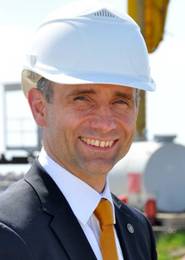
Rokas Masiulis, General Manager of Klaipedos Nafta
The Klaipeda-based enterprise Klaipedos Nafta and the energy company Lietuvos Energija signed the preliminary contract that turned to be the first step in the negotiations regarding the volumes and terms of gas supply from the projected Liquefied natural gas (LNG) Terminal, the company reports to NASDAQ OMX Vilnius.
During the implementation of the LNG Terminal's project, the parties have committed to exchange information and specify all the related data necessary for the conclusion of the main agreement, reports LETA/ELTA.
The Contract also provides for Klaipedos Nafta, the company responsible for the project, to put all efforts so that the LNG Terminal's capacity would allow guaranteeing the total gas volume necessary for Lietuvos Energija.
The parties will specify the gas volumes, terms of delivery, pricing principles, distribution of responsibilities in the main Agreement that is expected to be signed by December 31, 2012.
The LNG Terminal in Klaipeda Seaport is expected to start its operation by the end of 2014.
- Bookmark :
- Digg
- del.icio.us
- Stumbleupon
- Redit it
Only 22% of Lithuanians trust their judiciary!
- Posted by - (0) Comment
![]()

Throughout the former Soviet Union — which collapsed 20 years ago this December — the idea of a rule of law has failed miserably, with Russia and other countries maintaining a "pocket judiciary" that caters to the powerful and wealthy.
But the Western-leaning Baltics, members of NATO and the EU since 2004, might be expected to be an exception.
"The problem in the Baltic states is that you don't have the law used in that perverse sense (as in Russia), but you have all the real post-Soviet problems of judicial independence," said Andrew Wilson, an analyst at the European Council for Foreign Relations.
People in the Baltics look poorly on the judiciary. In Latvia, only 36 percent of the population trust their courts, according to a Eurobarometer survey in November 2010, while only 22 percent of Lithuanians trust their judiciary.
"I must say that Lithuania is among those countries where trust in judiciary institutions is lowest" in the EU, said Justice Minister Remigijus Simasius.
For many plaintiffs, the biggest frustration stems from the enormous backlog of cases and overloaded judges.

"I must say that Lithuania is among those countries where trust in judiciary institutions is lowest in the EU", said Justice Minister Remigijus Simasius.
- Bookmark :
- Digg
- del.icio.us
- Stumbleupon
- Redit it
- Posted by - (0) Comment

Save Our Lady of Vilnius (and our office view)!
By Noreen Malone, New York Magazine

The Lady of Vilnius in New York.
Perhaps you, Intel reader, work in an office. Perhaps sometimes, as much as you might love your job, you stare at the taupe walls of your cubicle, the industrial white paint on the walls, and your standard-issue Dell desktop and think about how it's all a little soul-crushing. Just fluorescent lights and vaguely tacky carpeting, day after day after day, until you eventually die or possibly marry rich or get a job somewhere like Google or the Barneys window-design department. But maybe there is one bright spot in your Office Modern visual palette: a window with sunlight, and a view that you have come to treasure.
Outside our windows here at New York HQ, our view is a jumble of billboards for storage services, sturdy city trees, glassy Soho high-rises, and cars headed for the Holland Tunnel. But also, unexpectedly and charmingly situated in the middle of all that bustling 2011-ness, there's a modest sand-and-weathered-copper church, Our Lady of Vilnius. It has survived assaults from Hellboy and other assorted demonic beings, but now Vilnius faces Judaslike betrayal from a trusted authority: the Archdiocese of New York.
The church, which was built a century or so ago by Lithuanian immigrants, was closed in 2007 by the archdiocese, along with other low-attendance parishes, as a cost-saving measure. Vilnius apparently has a roof that would cost a bundle to fix. But the Vilnius community — which now includes more recent waves of immigrants from places like Portugal and the Philippines — turned out to be more vibrant than expected.
- Bookmark :
- Digg
- del.icio.us
- Stumbleupon
- Redit it
IKEA to open in Lithuania!
- Posted by - (2) Comment
![]()

IKEA, which runs an international network of furniture and household stores, announced today its plans to open a store in Vilnius which will be the first IKEA outlet in the Baltic States. The store, to be built in the vicinity of the Vilnius International Airport, is to be erected by Felit, an Icelandic company operating through a franchise agreement with IKEA.
The investment project, valued 107 million euros, has been supported by the Lithuanian Ministry of Economy and Invest Lithuania, a public agency which offers free consulting services to foreign investors.
“Large international companies invest when they see tangible benefits for their business. IKEA’s decision means that the government has followed the right path in order to improve the business environment and ensure stability in several recent years,” said Rimantas Žylius, the Minister of the Economy.
The fact that IKEA has developed a viable network of partners and suppliers in Lithuania over the past decade was an important argument in encouraging IKEA to open its store in Vilnius, according to Mantas Nocius, General Manager of Invest Lithuania.
“Expanding presence in Lithuania through opening a store looked like a natural next step. This idea has begun materialising about one and a half years ago. We did our best to prop up this project and have the deal done,” Nocius said.
IKEA, which currently runs a network of 325 stores worldwide, is one of the largest furniture and household retailers. Its projected sales are to stand at 26 billion euros in 2011.
- Bookmark :
- Digg
- del.icio.us
- Stumbleupon
- Redit it
VilNews e-magazine is published in Vilnius, Lithuania. Editor-in-Chief: Mr. Aage Myhre. Inquires to the editors: editor@VilNews.com.
Code of Ethics: See Section 2 – about VilNews. VilNews is not responsible for content on external links/web pages.
HOW TO ADVERTISE IN VILNEWS.
All content is copyrighted © 2011. UAB ‘VilNews’.

 Click on the buttons to open and read each of VilNews' 18 sub-sections
Click on the buttons to open and read each of VilNews' 18 sub-sections 















.jpg)



